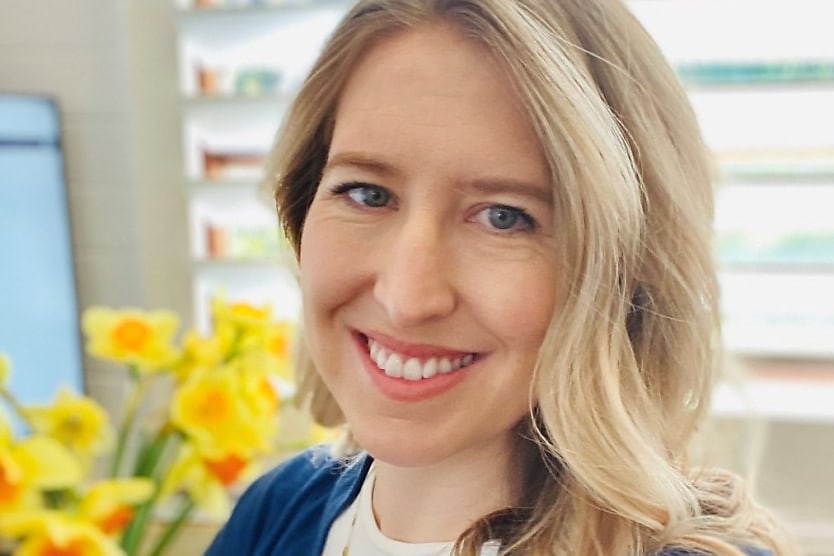
Having the power of purpose when making vocational decisions as a lawyer can make all the difference, argues one lawyer.
For Elisabeth Flett (pictured), aligning her career with her personal values has led her to have more fulfilling work experiences and opportunities that extend well beyond her day-to-day role.
In conversation with HR Leader's sister brand, Lawyers Weekly, Flett explained the importance of realising that “your career is uniquely yours, and only you should define how it plays out”.
“Follow your own instincts and trust in the hard work and experience you’ve put in, to seek out a fulfilling and sustainable career,” she advised.
For her, having purpose in her vocational pursuits has been a “powerful” source of motivation, resilience, and fulfilment.
“You’ll encounter challenges in any workplace – tight deadlines, difficult stakeholders or resource constraints – but working towards a clear and important goal motivates you to look beyond the frustration to find solutions,” she explained.
“And, when the work is complete and someone’s life has improved as a consequence of the work you’ve done, the sense of satisfaction hits a little deeper. The beauty of working around others with the same high level of motivation and fulfilment is that it creates a more professional, respectful, and collaborative culture.”
Flett detailed how she learnt to align her career trajectory with her own values and what the results have been.
“I’ve learnt to listen deeply to what I need to feel fulfilled, energised, and motivated. Making decisions that aligned with these drivers has meant breaking with the expectations I’d placed on myself about my career and definition of success and embracing a non-traditional career path, which hasn’t always been easy,” she reflected.
“It has meant leaving some roles sooner than I’d have otherwise wanted to and making some financial sacrifices to pursue roles that better aligned with my personal needs, including family life.”
“I’ve realised that the decisions that at times made me feel like I’d failed to follow the ‘right way’ to undertake my legal career were actually very necessary steps to finding a deeply satisfying and sustainable legal career.”
When asked what lawyers can and must ask of themselves to better align purpose and work, Flett responded: “The first question is to ask what motivates and fulfils you. It can be different for everyone and will vary throughout the stages of your career and personal life.”
However, she continued, “I think the most important and more challenging question to answer and then act on is, what’s holding you back?”
“We seek stability and familiarity, so fear is often the biggest factor in making any change. When the change is one that might be seen as a major move in industry or in roles, my advice is to start tackling the beliefs that underpin your hesitation or doubts,” Flett submitted.
“Research and learn more about those roles that you might want to explore, connect with those already working in similar roles, and look to those who have made their own leaps of faith for information that can help answer the doubts.”
In the current climate, Flett went on, legal professionals are more attuned than ever before to the myriad stresses and difficulties that can and do arise due to one’s time in practice.
“With below-average mental health statistics, experiences of bullying and harassment being far too common, and cost-of-living pressures, career alignment and fulfilment might seem like an idealist’s pursuit,” she mused.
“However, it has been my experience that the more energy you need to put into just sustaining your career and coping with dissatisfaction, the less you have to fulfil your personal needs and to give to the quality of your work and other success factors such as mentoring, undertaking further study or volunteering.”
And while there is no hard or fast rule as to how early on in one’s career one should look to create such alignment, Flett flagged that practitioners of all stripes will come across different opportunities that provide pause for thought.
“While some may launch in exactly the area and type of environment they want to remain, for most, finding purpose and alignment is something that happens little by little and improves over their career lifetime.
“Early in your career, alignment may simply be working with people who share your values and for a partner or GC that is supportive of your personal needs and wellbeing. With a little more experience, you’re better equipped to make the bigger changes to pursue work that aligns more with your interests as well as your professional skill set, such as changing industries or moving from private practice to in-house, to the bar, or vice versa,” she opined.
“It wasn’t until 12 years’ PQE I landed my current role in a highly purpose-driven environment where I also get to use my hard-earned commercial legal skills.”
“However, this wasn’t the first time I’d found alignment or purpose in a role; each of the moves I made from about five years‘ PQE was values-driven and led to growing my understanding of what I wanted from my career.”
“It doesn’t need to happen in one single move.”
This article was originally featured in Lawyers Weekly.
RELATED TERMS
A company's assistance to an individual's professional development, particularly when the employee moves to a new role or project within the business, is known as career development. The organization's HR business partners or managers, as well as HR services like learning and development, talent management, or recruiting, frequently support this through coaching, mentorship, skill development, networking, and career planning.
Jack Campbell
Jack is the editor at HR Leader.










